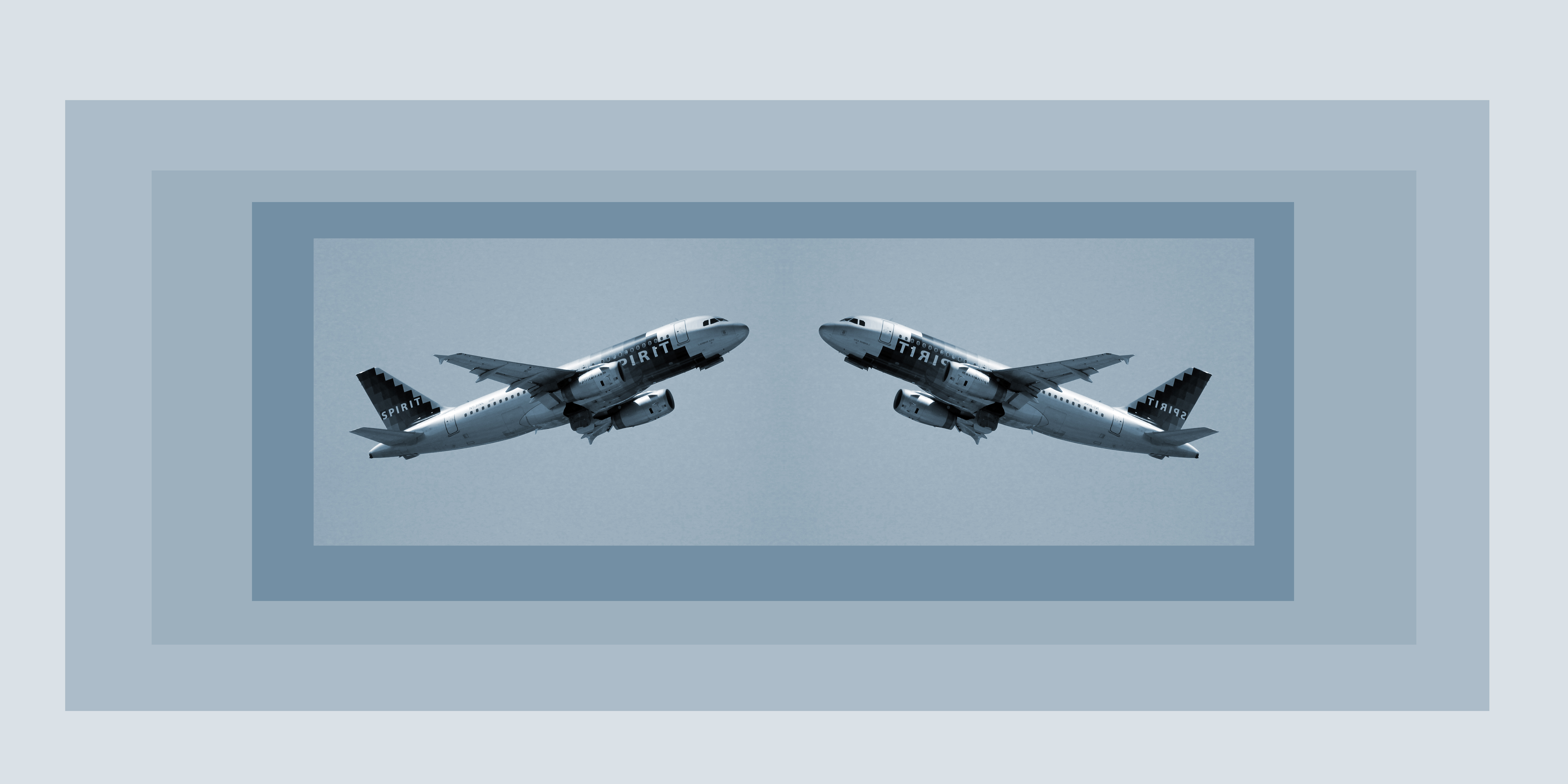The icky economics behind the success of Spirit Airlines
Does a five-hour flight in a cramped plane with no amenities sound awful to you? It should.


A free daily email with the biggest news stories of the day – and the best features from TheWeek.com
You are now subscribed
Your newsletter sign-up was successful
Earlier this month, Spirit Airlines added a route from Chicago to Latrobe, the hometown of the much-beloved host of Mister Rogers' Neighborhood.
It's the only commercial airline that operates out of the modest Pennsylvania town of 10,000, a fact that is representative of everything that's made the airline noteworthy in recent years. It boasts remarkably low fares but charges fees for everything from baggage to peanuts to re-booking to drinks. Its airplanes are spartan, with smaller seats that don't recline, and they feature ads for booze and casinos and more. It pays many of its employees lower wages, offers stingier benefits, and runs its planes for more hours each day than its competitors.
The result is something of a paradox. Spirit made waves when a Consumer Reports survey late in 2013 gave the company one of the lowest scores ever. Yet its ultra-low fares have allowed Spirit to broaden its customer base to those who otherwise couldn't afford to fly — hence the service to Latrobe — earning the airline one of the highest profit margins in the industry.
The Week
Escape your echo chamber. Get the facts behind the news, plus analysis from multiple perspectives.

Sign up for The Week's Free Newsletters
From our morning news briefing to a weekly Good News Newsletter, get the best of The Week delivered directly to your inbox.
From our morning news briefing to a weekly Good News Newsletter, get the best of The Week delivered directly to your inbox.
A lot of people hate it, and a lot of people are flying it. Thinking through that paradox can tell us a lot about how we conceive of economics in the era of inequality.
What Spirit Airlines clarifies is that different business models are needed to serve groups of customers with different levels of collective purchasing power. Walmart is another example of this. In an economy where the share of lower-wage jobs is set to grow, and middle-wage jobs are set to shrink, a business model that can cheaply provide food, clothing, electronics, and all the other odds and ends of daily life is a boon to low-income Americans.
As Spirit Airlines CEO Ben Baldanza told NPR's Planet Money in 2014, other airlines charge higher fares because they build the price of carrying baggage, food, drinks, and customer service into the price of the ticket. By stripping out those things, Spirit can let cash-strapped customers choose what they want to pay for, while offering them the actual act of travel for cheap.
"They're elitist," Baldanza said in response to Consumer Reports. "That survey never asked customers about the price of their ticket."
A free daily email with the biggest news stories of the day – and the best features from TheWeek.com
But there is a flip side. In order to get those low prices, Walmart pays its employees poorly, offers scant benefits, often treats them like disposable widgets, and busts unions. As the biggest private employer in the country, it sets the terms for the rest of the retail industry, creating a downward ratchet in which low-income people can only afford to shop at Walmart — which grows the company, which then insures all those people stay low-income.
The downsides of Spirit Airlines' model are modest by comparison. An uncomfortable and annoying five-hour flight is hardly the worst thing that can happen. However, if Spirit's lower wages and benefits become a model for other airlines as competition becomes more fierce, that wouldn't be good. The problem is already spreading.
The danger here is treating the distribution of incomes as something that just "happens," like some people being born short and others born tall.
Planet Money rightly pointed out that economists differentiate between "stated preference" and "revealed preference." Spirit Airlines' terrible rating with Consumer Reports? That's the stated preference. But the fact that Spirit keeps selling tickets and has those high profits? That's the revealed preference.
But revealed preferences aren't really "preferences" so much as what people will put up with given the constraints of their real-world options. That has a considerably different ring to it. It suggests the problem isn't really Spirit; it's the broad economic circumstances that necessitate Spirit's business model in the first place. It's a reminder that the income distribution is itself a variable in play. And one that can itself be analyzed, critiqued, morally judged, and, most importantly, changed.
That distribution certainly isn't the fault of Baldanza or Spirit. But the necessity of Spirit Airlines is something of a canary in a coal mine — as is the response. Maybe being turned off by Spirit's business model isn't just upper class obtuseness. Maybe it's our moral instincts trying to tell us something about the nature of the economy we've created.
Jeff Spross was the economics and business correspondent at TheWeek.com. He was previously a reporter at ThinkProgress.
